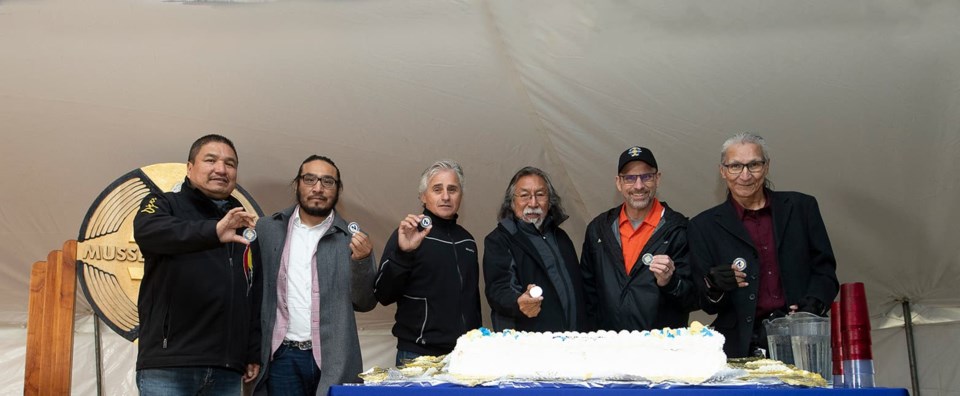MUSSELWHITE – At Musselwhite’s 25th-anniversary celebration, general manager Mark Kiessling announced that the mine has pulled five million ounces of gold from its underground cavern.
This achievement was commemorated, along with the anniversary, with a newly minted coin that those who attended the event got to take home.
Some First Nations leaders in the area, however, hope to bring home greater benefits to their communities, saying the company should do more to spread the wealth generated by the mine to area communities.
In 1992, Musselwhite signed a formal agreement with the surrounding First Nation of North Caribou Lake First Nation, Cat Lake First Nation, the Windigo First Nations Council, Wunnumin Lake First Nation, the Shibogama First Nations Council, Mishkeegogamang First Nation, and Kingfisher Lake First Nation where Musselwhite is located.
The agreement would provide these First Nations with compensation for the use of their territorial land, employment for their people, and business opportunities in partnership with the mine.
In attendance was Frank McKay, Council CAO of Windigo First Nation. Windigo First Nation has been a community partner with Musselwhite providing them with employment and training.
McKay said Musselwhite could provide more employment opportunities for the First Nation community in his speech. He asked the company to consider “doubling their efforts in relation to getting more employment for [the] people.”
McKay also wants Musselwhite to consider making an effort to give a travel allowance to those who are employed, and to talk about more developmental business opportunities.
“For the last 25 years, we’ve been working with Musselwhite mine with employment and training,” he said. “We have community members that come and work here. They get trained in various positions within the mine. We also have business opportunities. One is Windigo Catering and also Warriors Solutions. From the beginning, when they started building this mine, we helped build the road to Musselwhite mine from Windigo Lake, which was 40 kilometres.”
McKay wants Musselwhite to renew its contractual compensation agreements with the Windigo First Nation due to the disruption the mine has on fur tapping areas.
“We want our trappers that have been displaced by this mine to be adequately compensated,” said Mckay. “The agreement that we have is outdated and there has never been an increase, even though the cost of living has increased. So, it’s very important for them to share the wealth with the people that they displaced.”
Also in attendance was Kiiwetinoong MPP Sol Mamakwa, whose home is the Kingfisher First Nations territory where Musselwhite is located. Mamakwa also expresses a need for improvement in the partnership between Musselwhite and the First Nations communities.
“I think with the jobs that are available here, but also the sharing of the revenues has had an impact on Kingfisher but also the surrounding First Nation that are signatories to this agreement. I think 25 years is an opportunity to work together with the mine itself and Newmont, and I am here to celebrate that. But I know there is always an opportunity to make things better, like hiring more First Nation individuals at this mine, but also, we need more resources and more partnerships.”
Mamakwa said there must be a fundamental shift in how industry and governments operate. Governments must respect the treaty right of Indigenous people, but that obligation leaves a gap in how industries such as mining benefit from First Nations’ traditional territories without adequately compensating for the use of the land.
Mamakwa feels that there is an opportunity for Newmont and the First Nations to reach a revenue-sharing agreement that offers full benefits to both parties.
“I think we need to be able to share those resources equally,” said Mamakwa. “I think that is the intent of those treaties that our ancestors have signed. We need to share those agreements. Not just the government, but the industry needs to pay for those benefits. I think that is the real partnership.”
